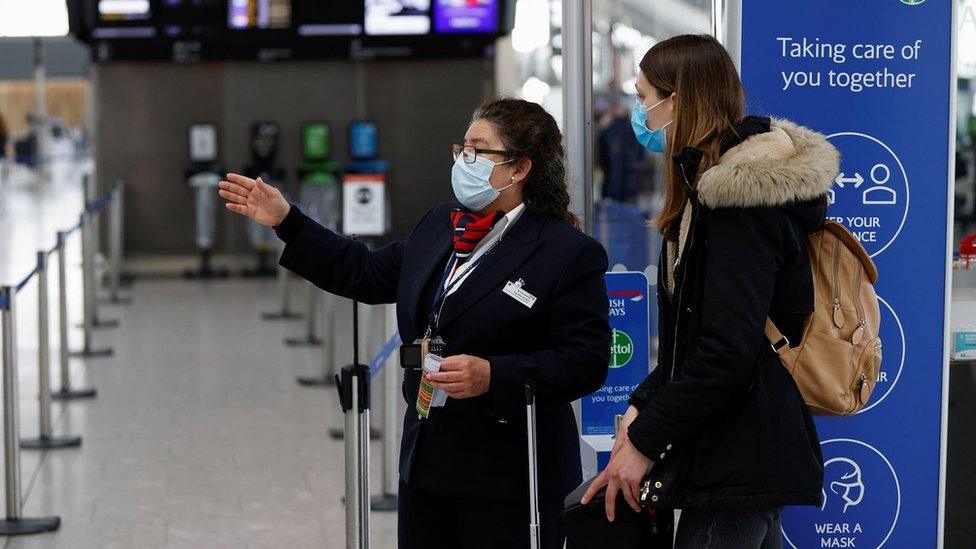Covid-19: Europe's view on vaccine certificates
- Published
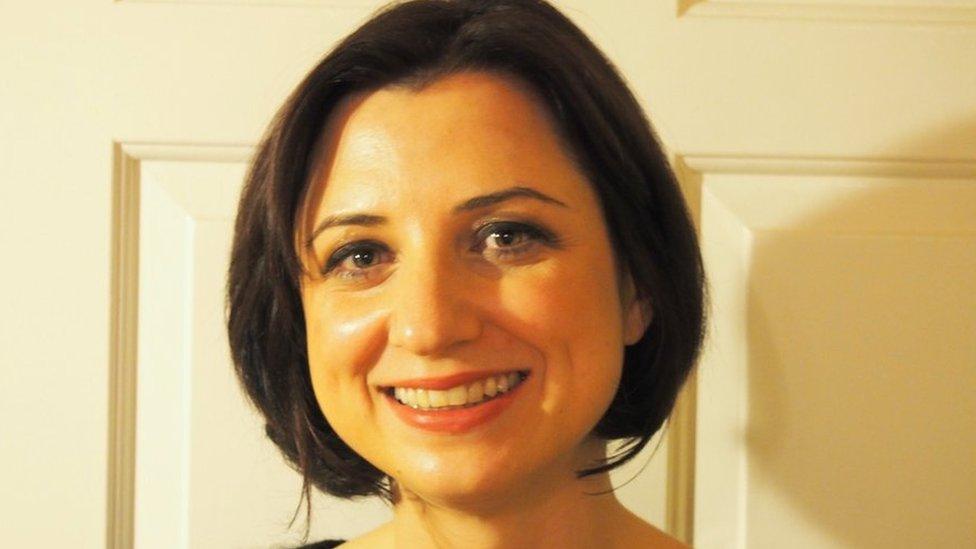
Caroline Corr is originally from Carryduff in County Down, but is now based in Luxembourg
The Digital Covid Certificate is being rolled out across EU member nations this month, and Tánaiste (Irish deputy PM) Leo Varadkar has suggested it could be adapted for indoor hospitality in the Republic of Ireland., external
Indoor hospitality was due to reopen in Ireland on the 5 July, but has been delayed.
When indoor hospitality does reopen, only those who are fully vaccinated or have recovered from Covid-19 will be able to eat or drink indoors.
Luxembourg is among a number of countries in Europe which have already issued vaccination passes to their residents.
One Northern Ireland woman living there, who has also lived in Dublin, believes vaccination certificates could help Ireland in its bid to restore indoor hospitality.
Caroline Corr, originally from Carryduff, County Down, said she thought they were a "great idea".

The Digital Covid Certificate is being rolled out across EU member nations this month
"It supports the hospitality sector as well and makes it much easier for them to open up and for life just to go back to normal a bit," she added.
"We would all still take precautions even though we are fully vaccinated obviously - but I just think it is a step back to normal life."
Ms Corr has been living in Bertrange in Luxembourg with her family for five years.
"I got my second vaccine two weeks ago and as soon as you get your second vaccine, you are issued with your Covid certificate," she said.
"You can use it for going into restaurants - for example they have the Covid check, so the restaurants can check you going in and you don't even need to wear your mask if you are fully vaccinated.
"They have opened up some (trial) events here, so going to concerts etc you can go to them as long as you have your certificate and then obviously travelling to different countries."
'It is a bit strange'
Ms Corr said she sampled some indoor hospitality with a friend a month ago, after receiving her first vaccination.
"If you haven't been fully vaccinated you can do an antigen test before you go into the restaurant," she said.
"It is a bit strange, because we were planning to sit on the terrace outside, but the weather was bad. If you are sitting outside you don't need to do any tests - so to move inside we had to do an antigen test at the table.
"It is a bit strange to sit down and have dinner and then having to start sticking things up your nose, but the restaurants have received quite a few antigen tests from the government."
Ms Corr also said she was planning to use her digital certificate when she travelled to Ireland.
"We booked tickets to go back to Ireland in August, both myself and my husband will be able to use our certificate to go back," she said.
"But my children obviously aren't vaccinated so we have to get PCR tests for them."
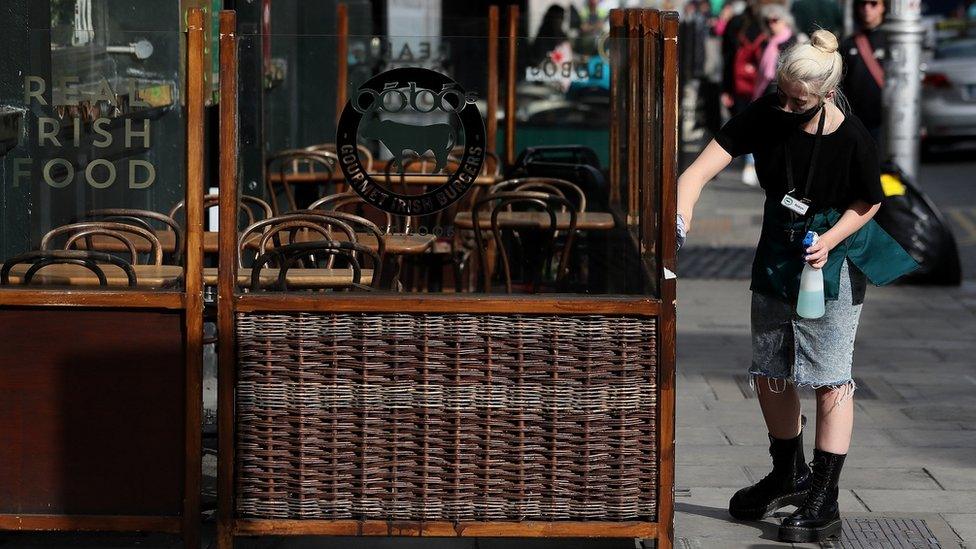
Plans had been in place for indoor hospitality in the Republic of Ireland to reopen on 5 July
Yannick Hansen, a journalist with the Luxembourg Times, explained that the country had three different Covid certificates: one to prove vaccination status, one to show a person has recovered from the virus in the last six months and one to show a negative test in the previous three days.
"Basically, all three certificates are simple QR (quick response) codes," he added.
"The vaccination QR code comes with the document you get after your final jab.
"The codes are also on every test result and on the document showing that you've recovered from the disease.
"Restaurant, bar or other venue owners can scan those codes with a government-approved app."
Mr Hansen said that in terms of visiting restaurants and bars, vaccination certificates "make life a lot easier".
"If you don't have one, you still get the chance to do a self-rapid test (antigen test) at the restaurant, but that means you don't get to sit with your mates (provided they have a certificate) for as long as you wait for the results to come back, which can be up to 30 minutes," he said.
"If no-one has a certificate, you're taken to a separate area where you'll need to do your rapid tests and wait there for your results."

Yannick Hansen is a journalist with the Luxembourg Times
Mr Hansen said that people he knew had welcomed the certificates as they "make life more convenient".
It is hoped the Digital Covid Certificate will make it easier for people to travel around the EU.
It is not a travel document - people will still need to carry a passport or another form of identification.
"Once the system is up and running in the entire EU, it will also make travelling a lot easier within the bloc," Mr Hansen added.
'Relatively hassle-free'
In April of this year, Denmark launched its Coronapas, a digital app indicating whether a person had a negative test result within the last 72 hours, a certificate of vaccination or proof of a previous infection two to 12 weeks earlier.
Privacy concerns have made the passes controversial in some countries, but Denmark was among the first to embrace the idea fully.
Dr Sara Dybris McQuaid, director at the Centre for Irish Studies at Aarhus University, who has studied in Northern Ireland and the Republic, said her experience with Coronapas had been "relatively hassle-free".
However, she recognised the difficulties that hospitality staff could encounter with checking vaccination certificates for people seeking entry to indoor premises.
"Since restaurants reopened, it has been possible to sit outside even without the certificate, so people have had different options," she added.
"I teach a dance class on Sundays, where I have had to check certificates upon entry, and it is obviously an awkward situation when people have forgot to test (in the past 72 hours) and I have had to turn them away.
"I imagine those situations must be immensely more tough for hospitality staff who are likely to be in those situations many times a day."
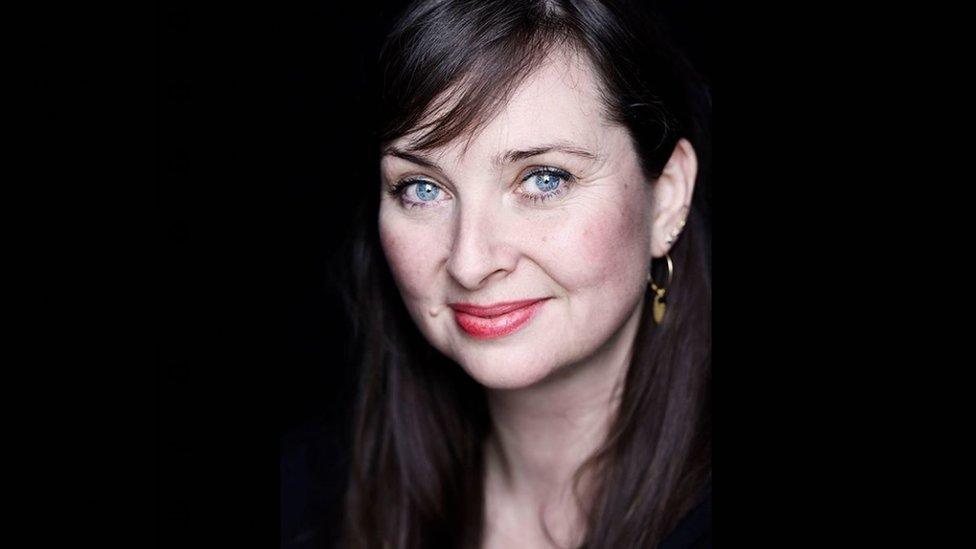
Dr Sara Dybris McQuaid is director at the Centre for Irish Studies at Aarhus University in Denmark
Earlier this week, Irish Health Minister Stephen Donnelly said the cabinet intended to agree a plan by 19 July, in consultation with the hospitality industry, to allow those who are vaccinated or recovered from Covid-19 to use indoor hospitality.
Taoiseach (Irish PM) Micheál Martin gave no date for when indoor dining and drinking in pubs and restaurants would resume.
Restaurateurs and publicans expressed their anger and frustration at Mr Martin's comments and said they were concerned about how a vaccination certificate system would work for indoor hospitality.
Outdoor hospitality in the Republic of Ireland reopened on 7 June, with social distancing and restrictions on the number of people who can meet in place.
Cyber attack
In Northern Ireland, indoor hospitality reopened on 24 May, with restrictions in place on the number of people and households able to meet.
A paper-based vaccine "passport" could be available in Northern Ireland as early as 5 July, the Department of Health there has said.
The department also said it is to introduce an "emergency interim plan" to allow people to travel before official vaccine certification comes into place later this month.
EU Commissioner Mairead McGuinness has said, external that the Republic of Ireland's Covid-19 travel certificate, which will fit into the EU's Digital Covid Certificate, should be ready by 19 July.
The Digital Covid Certificate went live on Thursday, with 21 of the 27 countries in the EU connected to the system.
The European Commissioner for Justice, Didier Reynders, said on Thursday that Ireland was the only European Union member state not ready to comply with the EU Digital Covid Certificate for travel.
He added that this was due to the cyber attacks on Ireland's healthcare system in May.
There will be a grace period until 12 August for countries who were not ready to join on Thursday.
The Irish government has been contacted by BBC News NI in relation to how any vaccination certificate scheme will operate.
- Published6 August 2021
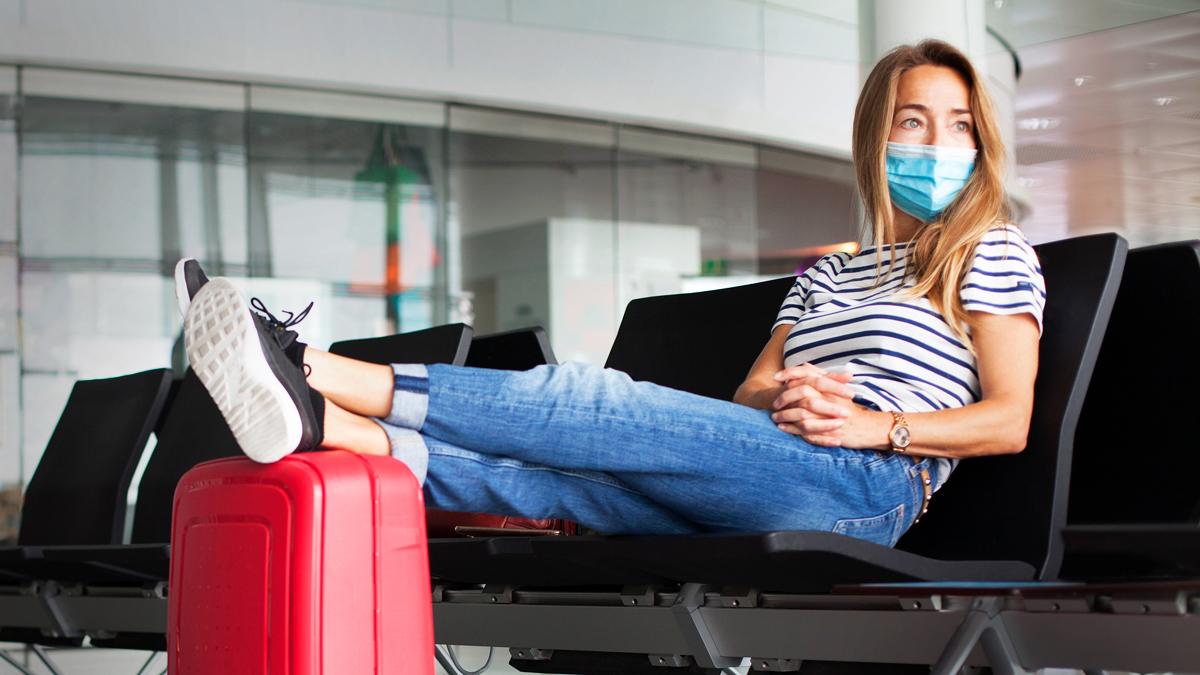
- Published28 February 2022
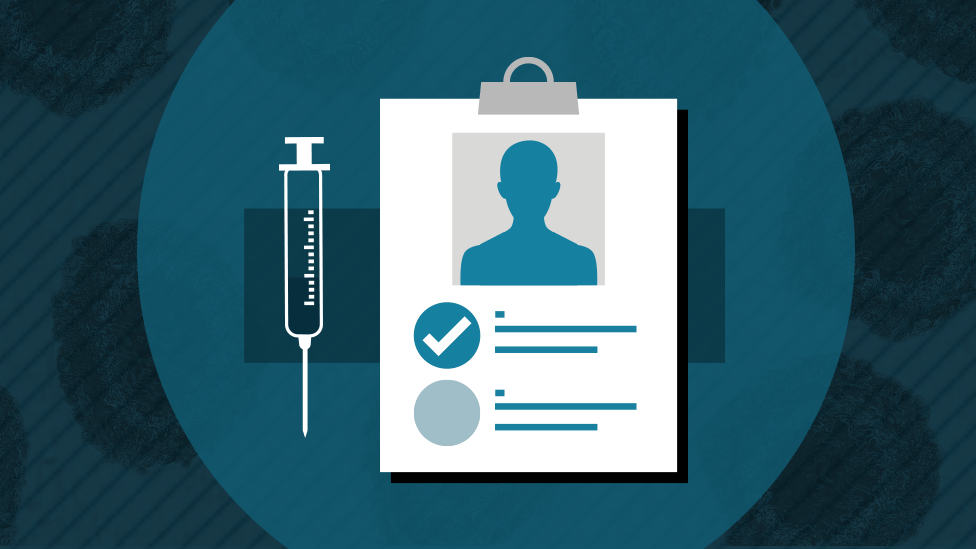
- Published1 July 2021
